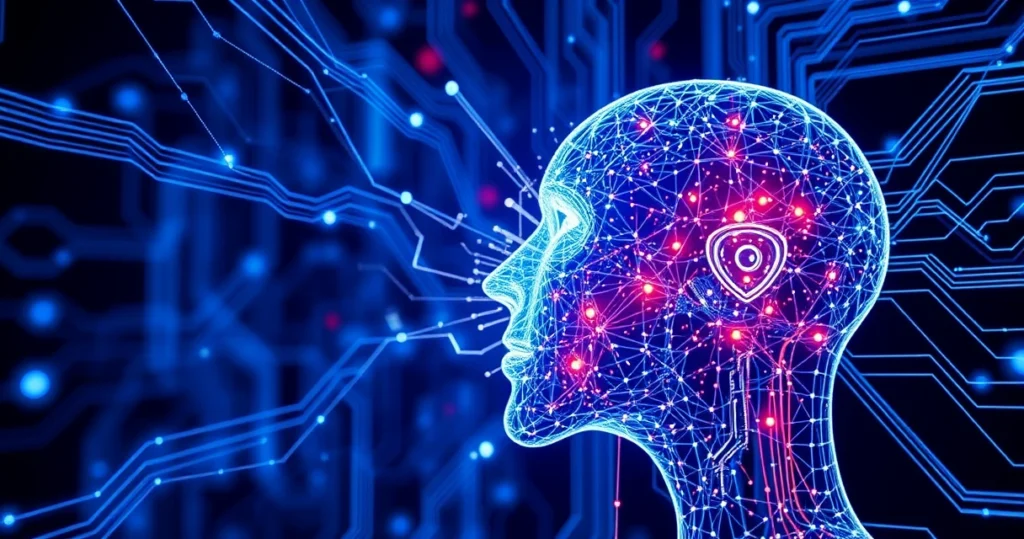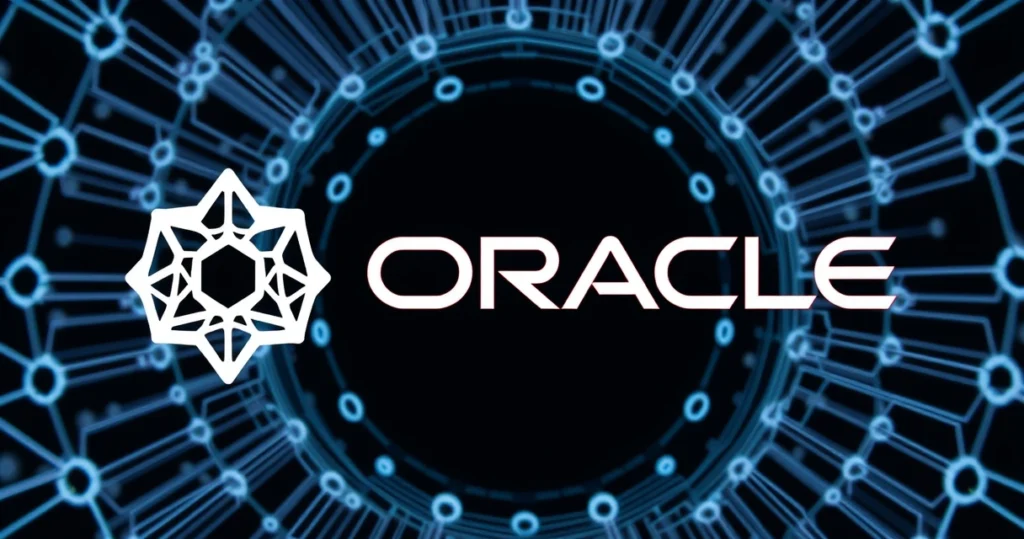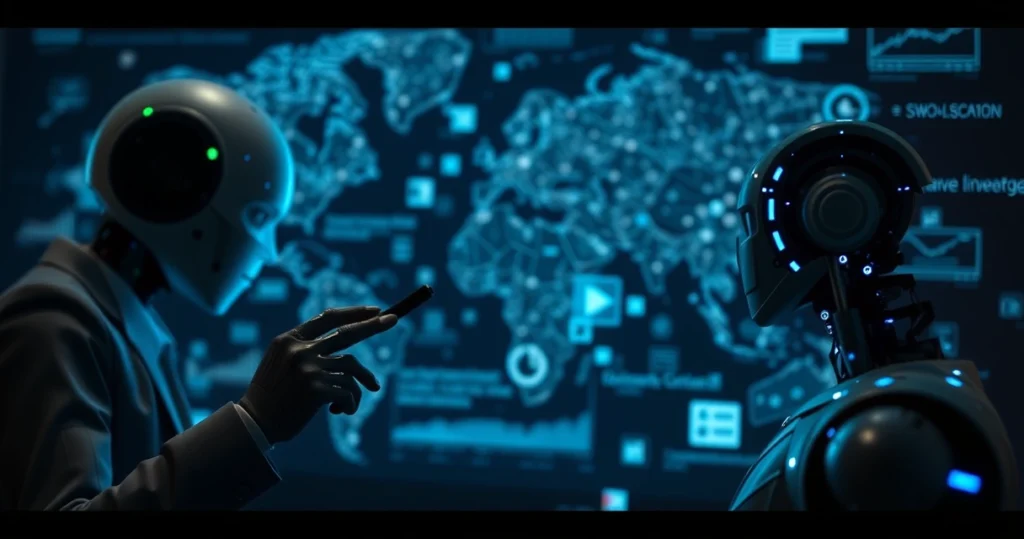As generative AI continues to evolve, the intersection of artificial intelligence and copyright law has become a hotbed of legal discourse. With the rapid development of AI technologies capable of creating original works, questions surrounding intellectual property rights have surged to the forefront. On July 16, a group of legal experts and writers addressed these pressing issues, providing clarity on the challenges and implications of AI copyright battles. This article aims to summarize those key discussions, unraveling the complexities of AI copyright and offering insights into what you need to know.

The rise of generative AI has not only transformed creative industries but has also sparked intense debates about ownership, attribution, and the ethical use of AI-generated content. As the boundaries of creativity blur between human and machine, understanding the legal ramifications becomes crucial for artists, developers, and businesses alike. This article will delve into the current landscape of copyright battles involving generative AI, exploring the implications for intellectual property and offering practical advice for navigating this evolving terrain.
The Landscape of Generative AI
Generative AI refers to algorithms and models that can create text, images, music, and other forms of content autonomously. These systems, such as OpenAI’s GPT-3 and DALL-E, have raised questions about originality and ownership since they often learn from existing works to produce new content. As a result, understanding the nuances of AI copyright is essential for anyone involved in creative endeavors.
Understanding Generative AI
Generative AI utilizes deep learning techniques to produce outputs based on input data. By analyzing vast amounts of information, these systems can generate high-quality content that mimics human creativity. However, this raises critical questions regarding copyright infringement, particularly when the AI uses copyrighted material as part of its training data.
The Role of Training Data in Copyright
One of the most contentious issues in AI copyright battles is the use of training data. Generative AI models are often trained on extensive datasets that may include copyrighted works. This brings up questions about whether the creators of these models can claim ownership over the AI-generated content or if they are infringing on the rights of original content creators.
Key Copyright Battles in AI
As generative AI continues to gain traction, several high-profile copyright cases have emerged, highlighting the ongoing legal disputes in this area. Here are some notable battles that have shaped the current understanding of AI copyright:
- Case 1: Getty Images vs. Stability AI
In this landmark case, Getty Images sued Stability AI for allegedly using its copyrighted images without permission to train its AI model. The outcome of this case could set significant precedents regarding the rights of content creators in the age of AI. - Case 2: Authors Guild vs. Google
This case revolved around whether Google’s book scanning project infringed copyright. Although it primarily involved text, the implications for generative AI are substantial, as it could influence how AI systems handle copyrighted material. - Case 3: Oracle vs. Google
This case dealt with the legality of using Java APIs in Google’s Android operating system. While not directly related to generative AI, the principles established could impact future AI copyright cases.
Legal Implications of AI Copyright
The legal landscape surrounding AI copyright is complex and still evolving. The following are critical implications that artists, developers, and businesses should be aware of:
Ownership of AI-Generated Works
One of the primary questions in AI copyright battles is who owns the rights to content generated by AI systems. Current copyright laws typically protect works created by human creators. However, as AI systems become more autonomous, lawmakers must consider how to adapt existing laws to account for non-human creators.
Fair Use Doctrine
The fair use doctrine allows for limited use of copyrighted material without permission, typically for purposes like criticism, comment, news reporting, teaching, scholarship, or research. As generative AI often uses copyrighted works as training data, the applicability of fair use in these scenarios is a subject of ongoing legal debate.
Attribution and Credit
Another critical issue is the question of attribution. If an AI generates a work that closely resembles a copyrighted piece, who should be credited? Should the creators of the AI, the developers of the training data, or the AI itself receive credit? These questions complicate the relationship between creators and AI technology.
Practical Considerations for Creators and Businesses
As the legal landscape surrounding AI copyright continues to evolve, creators and businesses must adopt proactive strategies to protect their intellectual property. Here are some practical considerations:
- Understand Copyright Laws: Stay informed about existing copyright laws and how they apply to AI-generated content. This knowledge can help in making informed decisions about the use of AI technologies.
- Document Creation Processes: Keep thorough records of the creation process, including the data sources used for training AI. This documentation can be crucial in establishing ownership and addressing potential copyright disputes.
- Use Licensing Agreements: When using AI tools, ensure that you have clear licensing agreements that outline the rights and responsibilities of all parties involved. This can help mitigate legal risks and clarify ownership issues.
- Consult Legal Experts: Given the complexities of AI copyright, consulting with legal professionals specializing in intellectual property can provide invaluable guidance.
Frequently Asked Questions (FAQ)
1. What is generative AI?
Generative AI is a type of artificial intelligence that uses algorithms and models to create new content, such as text, images, and music, based on patterns learned from existing data.
2. Who owns the copyright for AI-generated works?
The ownership of AI-generated works is a complex issue. Current laws typically protect works created by humans, leading to ongoing legal debates about how to adapt these laws for non-human creators.
3. Can AI infringe on copyright laws?
Yes, AI can potentially infringe on copyright laws, especially if it uses copyrighted material without permission during its training process or generates outputs that closely resemble copyrighted works.
4. What is the fair use doctrine?
The fair use doctrine allows limited use of copyrighted material without permission under specific circumstances, such as for criticism or research. Its applicability in the context of AI is still being debated.
5. How can creators protect their intellectual property in the age of AI?
Creators can protect their intellectual property by understanding copyright laws, documenting their creation processes, using clear licensing agreements, and consulting legal experts for guidance.
Conclusion
The ongoing battles over AI copyright are a testament to the complexities of integrating artificial intelligence into the creative landscape. As generative AI continues to advance, the legal framework surrounding intellectual property will need to adapt to account for the unique challenges posed by these technologies. By staying informed and taking proactive measures, artists, developers, and businesses can navigate the evolving terrain of AI copyright battles and protect their rights effectively. With the right knowledge and support, the future of creativity and AI can be a collaborative and innovative journey.
📰 Original Source
Este artigo foi baseado em informações de: https://www.wired.com/story/livestream-ai-copyright-battles/



